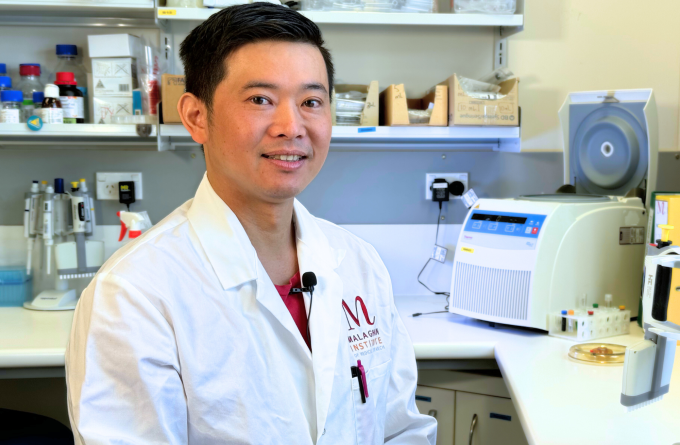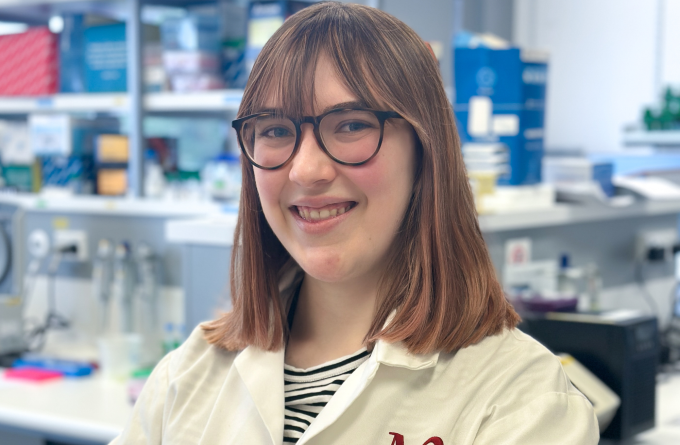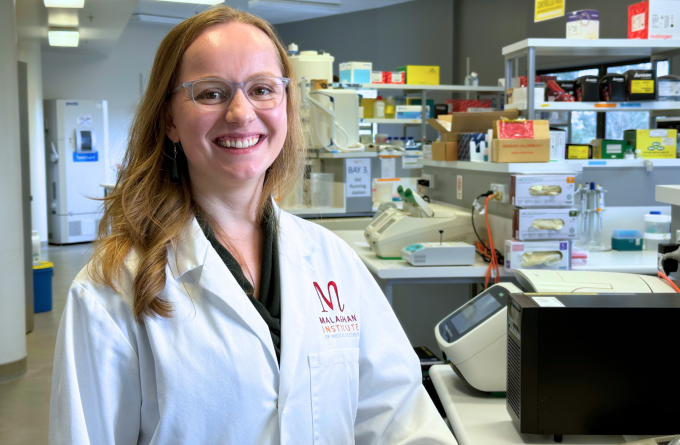9 November 2023
A cellular receptor, once notorious for its interaction with environmental toxins is now being investigated for its potentially critical role in supporting immune health.
Dr Jeffry Tang is a Senior Research Fellow working in the Gasser Lab at the Malaghan Institute. He specialises in nutritional immunology, studying how metabolites – molecules produced when food is broken down and absorbed by the body – affect our health. His research focuses on the aryl hydrocarbon receptor (AhR), a protein receptor found in a variety of cells across the body. A receptor is like a lock on the surface of or within a cell that can only be unlocked by specific molecules that fit into the receptor. When the right molecule binds to a receptor, it unlocks a particular action within the cell.
“Once a molecule binds to the AhR, the receptor and the molecule migrate to the nucleus, the cell’s command hub, where it has the ability to activate select genes,” says Jeffry.
The discovery of the AhR was made through research looking into why a potent class of environmental pollutants called dioxins is so detrimental to health. Present in by-products of industrial processes as well as the infamous Agent Orange used to clear forests during the Vietnam War, dioxins can cause reproductive and developmental problems, damage the immune system, interfere with hormones, and cause cancer. The AhR was discovered to be a specific binding site for dioxins, providing insight into how dioxins interact with cellular components.
While the AhR was initially studied in the context of toxicology, over time, it has been found to bind to a variety of naturally occurring molecules, including some found in the human diet.
“Everybody eats. So dietary recommendations based on new research can be more easily updated and adapted. If new findings emerge about a particular food or diet, clinicians can readily adjust their advice."
“The AhR was identified as a very important environmental sensor. This broadened the scope of research and interest in the AhR, shifting the focus from toxic responses to a wider understanding of its role,” says Jeffry.
“The exact genes activated by the AhR are dependent on the molecule it binds to, influencing a range of outcomes. That is why the AhR is so interesting, it seems to have a variety of effects depending on what we are exposed to.”
Previous research has found that particular plants used in Chinese herbal medicine contain molecules that bind to the AhR receptor and have a balancing effect on the immune system.
Jeffry is conducting a series of experiments and clinical trials to understand how molecules from certain plants used in Chinese herbal medicine, which are known to interact with the AhR receptor, can modulate the immune system. This study is part of the High Value Nutrition National Science Challenge, Ko Ngā Kai Whai Painga.
Specifically, he is looking into how activating AhR via these compounds might aid in achieving immune homeostasis, which is the immune system’s ability to maintain a delicate balance. It is crucial that our immune response is not overly aggressive, causing harm to our own body, yet it must remain efficient enough to ward off infectious diseases.
“We have used a quality-controlled Chinese herbal medicine to see how it affects immune function when administered in specific doses,” says Jeffry.
“We want to pinpoint the crucial pathways our immune system uses to regulate itself, particularly through AhR activity.”
Environmental toxins can disrupt immune homeostasis, and understanding the AhR’s role could provide a pathway to mitigating these effects.
“Research also suggests that certain dietary choices could potentially prime the AhR, preparing it to deal more effectively with pollutants. This could open up new dietary strategies for bolstering our body’s natural defences against environmental toxins, especially pertinent as pollution continues to be a growing problem globally.”
“A large part of the motivation for the research I do is to find lifestyle changes that individuals can adopt to help overcome the health effects of the circumstances that may be out of their control, such as living in a highly polluted city,” says Jeffry.
“Everybody eats. So dietary recommendations based on new research can be more easily updated and adapted. If new findings emerge about a particular food or diet, clinicians can readily adjust their advice.”
Originally from the metropolitan city of Jakarta, Indonesia, Jeffry moved to New Zealand in 2010 to do his undergraduate and postgraduate studies in Food Chemistry at the University of Auckland. He went on to do his PhD in the same lab where he studied the effects of dietary metabolites on cells in the body that have been exposed to potentially damaging unstable molecules called free radicals, which are generated in the body through normal metabolic processes and environmental factors like pollution, radiation, and tobacco smoke.
He then worked as a biochemist at the University of Otago, Christchurch before joining the Malaghan Institute in 2019 to conduct research in nutritional immunology.
“Do I implement any research findings into my own life? I tell myself I will make all these changes eventually. I always aim to sleep more, eat more fruit and veg and keep active. I do like my badminton.”
Related articles

Dr Michelle Linterman: Asking the age-old question
30 April 2025

Kjesten Wiig: bringing life-changing treatments to life
27 February 2025

Fighting allergic skin disease at its root
17 December 2024

As easy as breathing: the future of vaccines
31 October 2024

CAR T-cell therapy, the battle of the blood cells
26 September 2024

Fever: too hot to handle or the body's first line of defence?
22 August 2024
